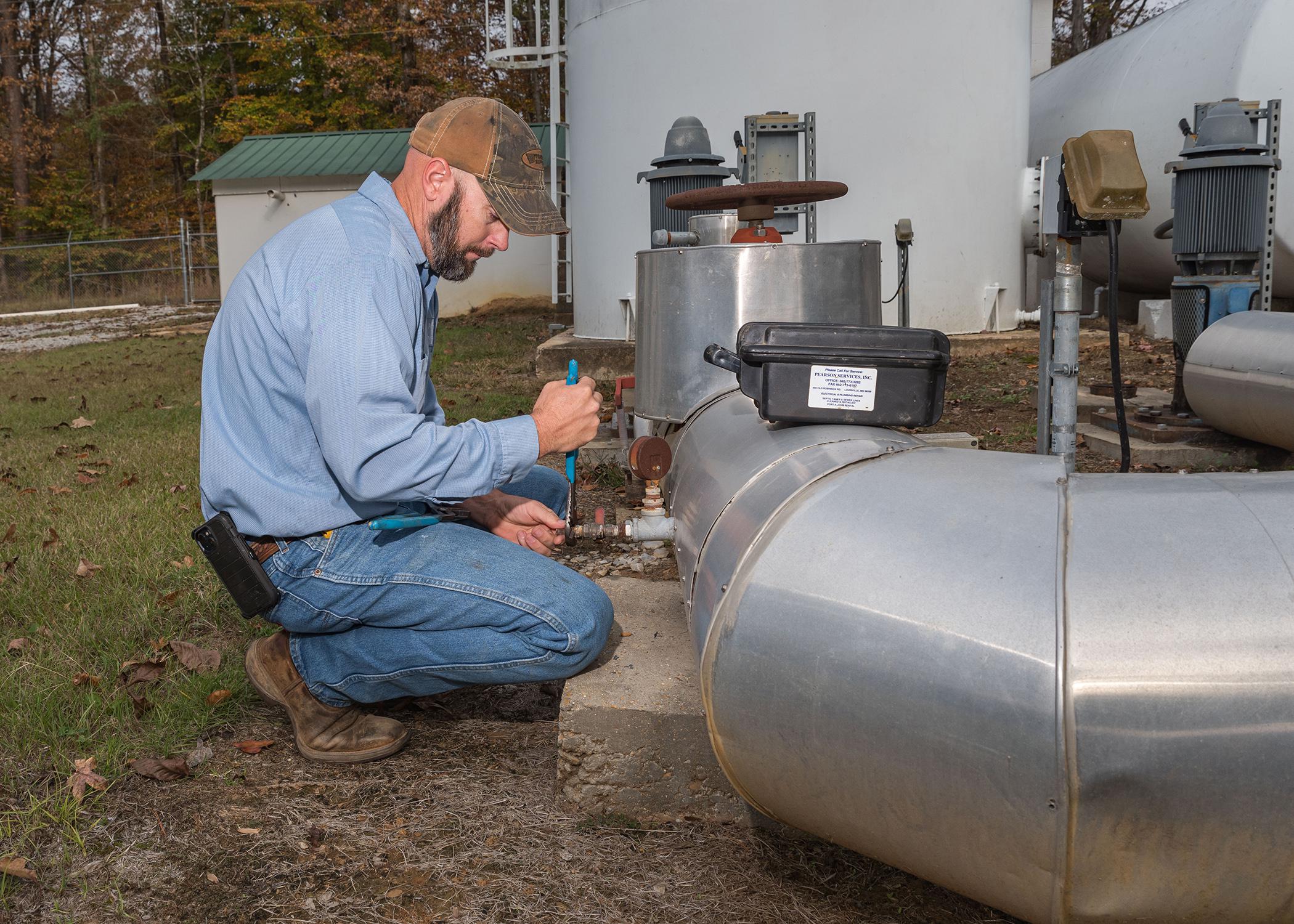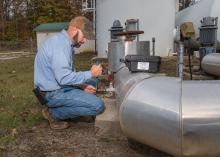State’s waterworks operators are aging, experienced workers
STARKVILLE, Miss. -- Although few consider what makes it possible to turn on the tap at home and get abundant, clean water, there is an entire critical infrastructure operating smoothly to make that happen.
Water towers, treatment plants, pipes and pumps make up the infrastructure of the public waterworks utility. Alan Barefield, an agricultural economist with the Mississippi State University Extension Service, said often-overlooked aspects of the success and sustainability of this infrastructure are the human assets, including the utility’s certified waterworks operator.
“There has been anecdotal evidence that the average age of certified waterworks operators who reside in Mississippi is increasing,” Barefield said. “While the data is not available to identify trends, we did find that the average age of water operators is relatively high and that fewer younger people seem to be entering and remaining in the industry.
“If this is indeed the trend and if this trend continues, it could become very difficult for utilities, particularly the smaller utilities, to employ a certified operator,” he said.
Mark Herring is a commissioner of the Shady Grove Utility District in Laurel, which has both a wastewater and drinking water system. He finds that filling vacant positions with qualified applicants is challenging.
“We just don’t have enough candidates in the job marketplace that have the training and qualifications needed to operate our system,” Herring said. “There’s a lot of opportunity for young people who want to get qualified for these positions. It’s a great job opportunity for someone.”
Herring said the Mississippi Rural Water Association provides training for the skills needed to qualify for waterworks positions, but there are not many applicants in the job pool.
“We usually end up attracting qualified candidates from existing municipal water associations,” Herring said. “These candidates come more educated and experienced, as they have put in their training time and hold the classifications needed to operate our system.”
Herring said he has found that the water association he works with, like most rural water associations, actually has pay and benefits that are above industry averages.
Herring is passionate about the responsibility of waterworks operators to provide quality water to the people they serve.
“There’s nothing more important than clean, quality water in your community,” Herring said. “You try going a week without quality drinking water or without a bath.”
This year, Barefield analyzed data on the state’s population of certified waterworks operators. He found that while there are sufficient people to fill the roles on a statewide basis, specific areas of the state are having problems finding waterworks operators with a specific class of licensure.
In his report, Barefield said 1,230 people hold a Mississippi waterworks operator license, and 1,146 of these live in the state. The average age of all Mississippi operators is just over 54 years, and these operators have been on the job for an average of close to 15 years.
Barefield’s data shows that the number of certified operators who live outside Mississippi increased by 25% since 2018.
“While some of these operators may live in border states and continue to work in Mississippi, it is plausible to assume that many relatively young operators in terms of experience would leave the water supply industry and enter another career path,” Barefield said. “The data seems to suggest that it is also plausible to assume that if an operator stays in the industry for two years, that operator is more likely to remain in the water supply industry.”
With the average age of water operators increasing, Barefield looks for reasons why less-experienced water operators leave the industry and others do not enter the field as a second career.
“Two of the most likely reasons seem to be compensation and working conditions,” Barefield said.
A 2021 MSU Extension survey found the average monthly salary for a designated waterworks operator was $2,801. A contract designated waterworks operator earned $1,318 per month and these contract operators were typically retained by small utility associations and water districts.
The work environment can be challenging for people to enter for the first time, and Barefield noted that a mentoring system could be one way to allow well experienced personnel to help those newly in the field become acclimated to job demands and expectations.
“Another strategy could be to establish accessible, intensive training programs for potential waterworks operators like the ones that were once held at the state’s community colleges,” Barefield said. “The Mississippi Rural Water Association has such a program, but it is only held in one location in central Mississippi and may not be accessible to all persons in the state who might want to explore this type of career.”
For the complete Mississippi Certified Waterworks Operator Age and Tenure Report, view Extension Publication P3938 at .






